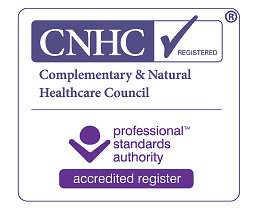How does Hypnotherapy Work?
There are two parts to your mind: the conscious and the unconscious. Your conscious mind is the part we are aware of in everyday life. But the majority of the mind (research suggests as much as 90%) is beyond our conscious control and awareness, and is known as the unconscious (or inner mind).
This part is responsible for your intuition and creativity, and is a vast reservoir of feelings, thoughts, memories, experiences, and desires, unique to you. It is this part that may be accessed and utilised in hypnotherapy - often with startling results.
It knows more than you do.
Milton Erickson
When you consciously try to make changes or take control of something in your life - often this isn’t enough. Hypnotherapy aims to allow you to access the unconscious mind so that changes can be made quickly and permanently. It uses focused attention to direct your mind so that it begins to work for you, rather than holding you back or stuck.
What you Believe, you Become.
What is Hypnotherapy?
People experience hypnosis (trance) all the time throughout the day. When you daydream or drive/walk along and realise you don’t remember doing so or how you got there – that is trance! Hypnotherapy aims to utilise this natural state to bring about change. Hypnosis has been used for thousands of years in many forms and is the oldest form of therapy. It is used in most cultures as a cure for many physical and emotional ailments.
Hypnotherapy is a psychological healing process that uses the state of hypnosis (or trance) to achieve a desired goal. Trance is merely a state of mind (actually a heightened state of concentration) that promotes better communication between the conscious and unconscious states of mind. Hypnotherapy is an amazingly powerful therapeutic tool that may help you to promote the changes you are looking for quickly and easily.
What will being Hypnotised be like?
Hypnotherapy is generally a very pleasant experience. It is similar to daydreaming. You will be seated comfortably, and as you listen to my voice you will drift into a comfortable, but altered state of mind, called hypnosis. We then use this altered state of consciousness to work with the subconscious mind - the part of your mind that allows you to create positive and lasting changes. You will always be in control during sessions. You would not be able to made do do anything that you are uncomfortable with, and are able to come out of hypnosis at any time you choose.
Will I be In Control?
YES - at all times.
You may have seen Stage/TV hypnosis where people voluntarily engage in hypnosis by allowing themselves to take part – knowing it’s just for fun. Stage hypnosis uses trance and suggestions for entertainment. Clinical hypnotherapy, on the other hand, uses these to promote change. Both situations require that people WANT to be hypnotised.
Hypnotherapy requires engagement by the client. The relationship between the client and hypnotherapist is paramount, as there needs to be trust and rapport. That’s why I offer a free initial consultation so we can chat prior to any sessions.
Can Everyone be Hypnotised?
If you want to be hypnotised, then yes, it is possible. Some people may experience a deeper level of hypnosis than others, but this does not matter for hypnotherapy to be effective.
Is Hypnotherapy Suitable for Everyone?
As a general rule, yes.
Hypnotherapy is not however advised for people with epilepsy or severe mental health issues, psychosis or certain types of personality disorders. You can check with your GP or contact me if you are unsure.
How can Relaxation Help Me?
Deep relaxation allows the body and mind to reach a state of emotional and physical calm. For many people, this is not achievable in their normal lives. However, it is vital to allow you to recharge, re-balance and rejuvenate. The relaxation achieved through hypnotherapy can be deep and profound, both physically and mentally. This in turn has many benefits, which can include:
• Stress relief
• Increased Positivity
• Feeling able to cope better
• Reduction in chronic pain, tension headaches, migraines, and back pain
• Increased Energy
• Aiding Sleep
• Strengthening the immune system
It is not possible to be stressed and relaxed at the same time - it's as simple as that!
When you are stressed, the sympathetic nervous system is activated (the so-called "fight or flight" response) and the opposing parasympathetic system takes over when you are relaxed. Relaxation Therapy turns on the parasympathetic nervous system, which rapidly reduces levels of stress.
Being able to "let go" in a safe and supportive environment brings a sense of calmness which lasts way beyond the session itself. This has a positive effect on the mind and body.
What should I look for in a Hypnotherapist?
Look for someone that you think you can work with and who you would like to help you on your journey of change. I offer a free initial consultation/chat to find out whether you would like to work with me and to establish if we would work well together. It also gives you the chance to ask any questions you may have and allows you to feel comfortable and committed prior to commencing with any sessions.
The NHS recommends that when looking for a hypnotherapist:
• you choose someone with a healthcare background – such as a doctor, psychologist or counsellor
• check they're registered with an organisation that's accredited by the Professional Standards Authority - such as myself.
I am CNHC Registered for Hypnotherapy. CNHC is an Accredited Register approved by the Professional Standards Authority (PSA) for Health and Social Care.
The government's Department of Health recommends that where people are looking for complementary health practitioners, they use someone who is registered with CNHC.
CNHC: "Hypnotherapy is a skilled communication aimed at directing a person’s imagination in a way that helps elicit changes in some perceptions, sensations, feelings, thoughts and behaviours. In a typical hypnotherapy session the hypnotherapist and client will discuss the intended alterations or therapeutic goals desired. The hypnotherapist will ask questions about previous medical history, general health and lifestyle to decide on the best approach for the individual.
Hypnotherapy may be found to be helpful for those seeking relief from a range of problems and is used alongside a person’s own willpower and motivation to seek a desired goal. It is often used to help relieve anxiety, aid sleeping, help to address bedwetting, address attitudes to weight, and help clients achieve behavioural change to stop smoking. It may also help with minor skin conditions that are exacerbated by stress and confidence issues, and may also be used to enhance performance in areas such as sport and public speaking. Hypnotherapy may help people to cope with and manage the relief of perceived pain.
What else does the NHS say about Hypnotherapy?
"Hypnotherapy uses hypnosis to try to treat conditions or change habits.
• You're fully in control when under hypnosis and do not have to take on the therapist's suggestions if you do not want to.
• If necessary, you can bring yourself out of the hypnotic state.
• Hypnosis does not work if you do not want to be hypnotised".
